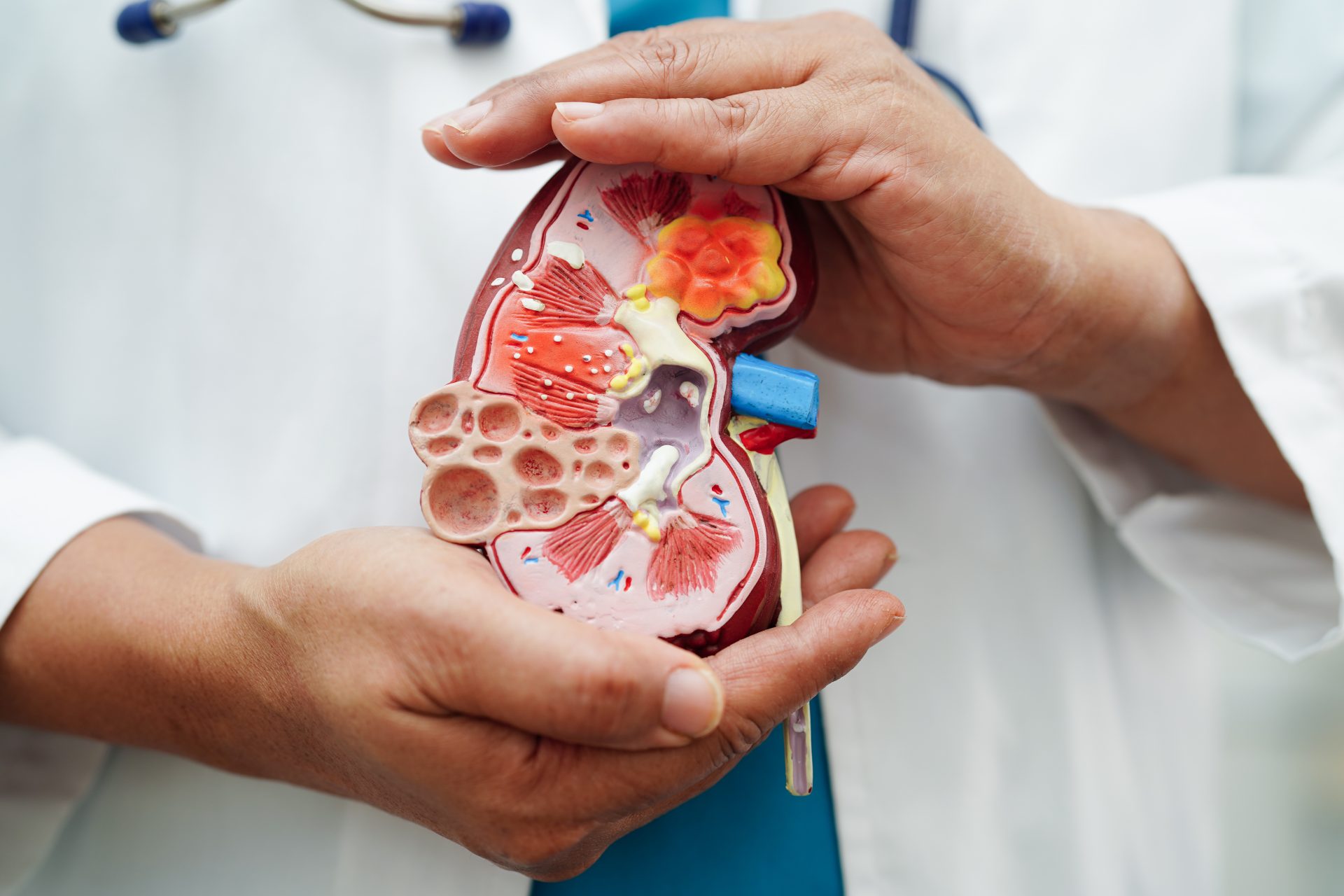What is ESRD?
Kidney disease is usually progressive and is classified into five stages. When the kidneys can no longer clean blood and balance fluids adequately, it is referred to as ESRD. This means you need dialysis treatments to perform the tasks your kidneys can no longer do. Many people continue to live active lives while on dialysis.


What are the symptoms of ESRD?
ESRD usually has no symptoms until it is very far advanced. When your kidney disease is severe, you may experience extreme fatigue, headaches, lack of hunger, nausea, itching, and swelling.

Treatment Options
There are two primary categories to consider when treating kidney disease: dialysis and transplant.
Dialysis is the process of eliminating waste and unwanted fluid from the blood through a specialized treatment.
IRC offers all modalities, including in-center dialysis, home hemodialysis, and peritoneal dialysis (PD); we may also offer nocturnal dialysis in some facilities. Your nephrologist determines the length of each dialysis treatment, which varies based on individual needs and the treatment type. Speak with your nephrologist to determine the treatment type most suits you.
A kidney transplant involves getting a kidney from another person surgically placed in your body. A transplant requires a referral to a special center and several blood and x-ray tests to be accepted to the waiting list to receive a kidney. Some patients, after testing, may find they have someone who can donate a kidney to them; this is called a living donor.

Modalities
There are several types of dialysis, each of which are called a “modality.” All provide excellent options for treatment.
In-center dialysis
In-center dialysis requires patients to go to a dialysis clinic, generally three times per week, to be connected to a dialysis machine. This machine cycles blood through a special filter, called a dialyzer, that removes waste and excess fluid from the blood. Specially trained staff monitor patients during in-center dialysis treatments.
Peritoneal dialysis (PD)
This is a needle-free approach that uses a patient’s abdomen as a filter and gives patients the freedom to perform the procedure at home or in other suitable locations. Our staff provides specialized training so you can safely perform Peritoneal Dialysis.
Home hemodialysis
Very similar to in-center dialysis, but in home dialysis the patient, along with a care partner, are trained to perform the dialysis treatment at home.
Nocturnal dialysis
Nocturnal dialysis gives patients the option to have dialysis treatments at night. These treatments are done at the dialysis clinic, and many patients will sleep there overnight while being dialyzed.




